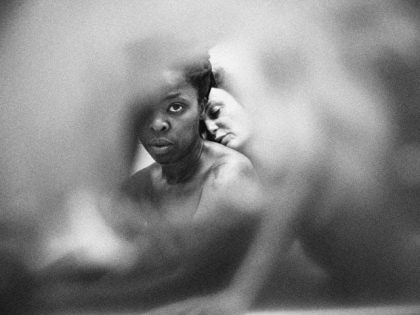The afterlives of indenture
South Africa's history of indentured labor leaves behind a legacy of violence against women among the country's South Asian population.

'The look you gave me made flowers grow in my ...' (2020) Alka Dass.
The first time I remember seeing Muruganlakshmi was at the Shree Siva Subramaniar Alayam in Verulam, a town outside the bustling city of Durban. The Drift temple, as the locals call it, is my family’s temple of choice. Our Kavady festivals and weddings take place close to the Umdhloti riverbank. When I was younger the temple was quiet, with the smell of agarbathi filtering onto the street but now, a highway runs right by the temple—and the priest’s invocations fight with long-haul truck horns and aircrafts at the nearby King Shaka airport.
That day, Muruganlakshmi, whose name I have changed to protect her identity, would have sat in the front of the congregation where she was always stationed. She had a long salt and pepper plait and her signature look for Sunday prayer service was a teal chiffon sari. She sang tevarams loudly, teasing out the notes in each ancient praise song from the harmonium at her feet. For more than thirty years, she was Verulam’s go-to harmonium player, making music for at least six different prayer groups well into her 80s.
I grew up in White River, a town almost eight hours away by car, but would often visit Verulam to see family. I enrolled in a masters program in political studies in 2017, and when it was time to pick a thesis topic, I thought back to my childhood. My project was on domestic violence and spirituality, and I had heard that Muruganlakshmi had some stories to tell.
When we first sat down for our interview in her kitchen, Muruganlakshmi was forthright and direct with me. I was young enough to be her grand-daughter and she told me:
You know my uncle was in a band? He liked my singing so when he used to go to functions, he called me to sing. My uncle used to play the harmonium but he didn’t teach me. No, nobody taught me. You match it, you match the singing when you play it now. My notes—I will just know. That’s what I am doing in the temple. I look in front. The guru is doing the prayer but I will be playing away for them. I can play without looking. I think of it as a special gift, but yet I had such a terrible, dramatic marriage.
Sign up for our mailing list
Thanks for signing up! →



